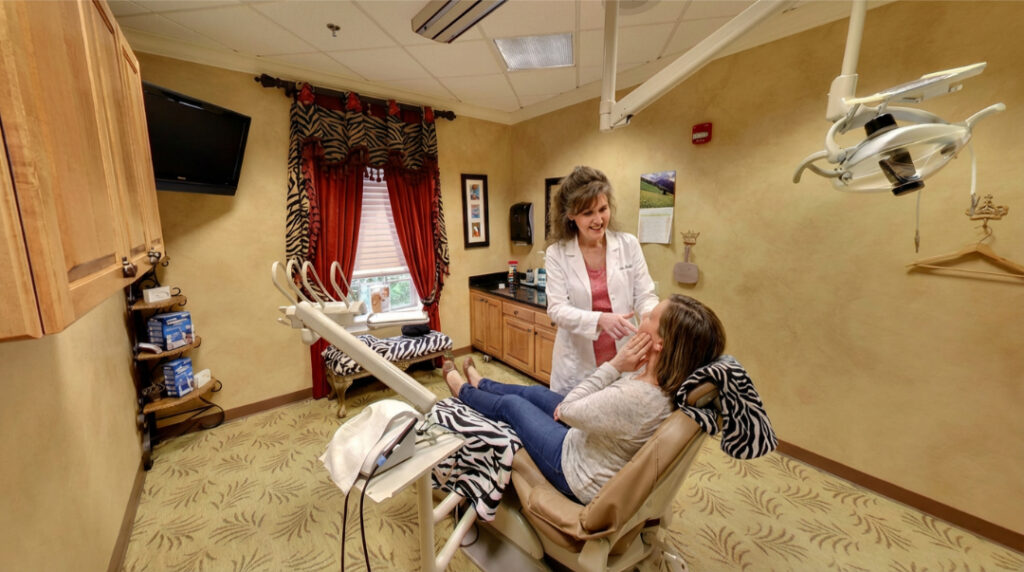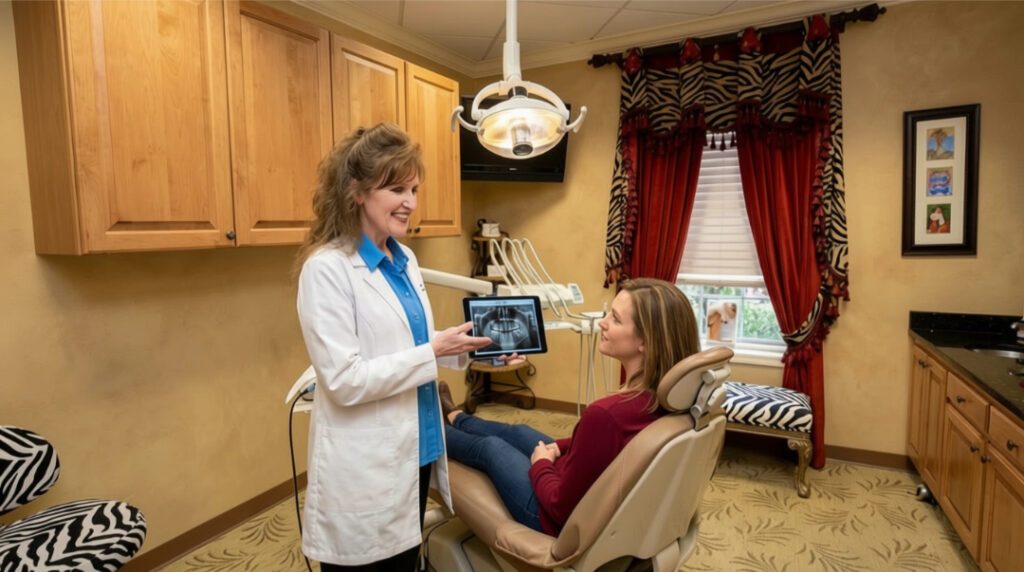Jaw clicking is not always a sign of TMJ disorder. Many people experience harmless jaw noises without pain or dysfunction, but if the clicking is paired with pain, locking, or limited movement, it could point to a temporomandibular joint problem that needs professional evaluation.

Jaw clicking is a sound or sensation in the temporomandibular joint when you open or close your mouth. In many cases, this clicking is harmless and occurs because of small shifts in the joint that do not cause long-term issues. Clicking alone without pain or difficulty moving your jaw is often not diagnostic of TMJ disorder.
Clicking becomes a concern when it is frequent, painful, or linked to functional problems like difficulty chewing or jaw locking. At Buford Dentist, patients often ask whether every clicking sound signals TMJ disorder. The short answer is no, but persistent symptoms should be monitored.

One of the most frequent causes is disc displacement with reduction. This happens when the cartilage disc that cushions the joint slips out of place but moves back when the mouth opens or closes. The shift creates a click or pop.
Teeth grinding and jaw clenching place constant stress on the muscles and joints. Over time, this repetitive strain can lead to clicking sounds. Stress is a major trigger, and many patients do not realize they grind their teeth during sleep.
When teeth do not meet properly, the jaw joints work harder to find a stable position. This uneven bite can strain the TMJ and produce clicking. Orthodontic issues and missing teeth often contribute to malocclusion.
Arthritis can affect the temporomandibular joint, leading to wear and tear of cartilage. Inflammatory or degenerative conditions may cause crepitus, a grinding sound, along with clicking. This tends to appear in older adults but can also affect younger patients with autoimmune issues.
A direct injury to the jaw, whether from a fall, accident, or sports, can disturb the balance of the joint. Patients sometimes report clicking that develops weeks or months after trauma.
Rarely, growths such as tumors in the jaw joint region may contribute to mechanical noises. While uncommon, persistent unexplained symptoms should be evaluated with imaging to rule out serious conditions.

A jaw click without pain or functional limitation is usually not a sign of a disorder. Studies show that many people have occasional joint noises that never develop into a medical problem.
Key points:
At Buford Dentist, we emphasize that not every click equals TMJ disorder. Monitoring your symptoms helps determine when further evaluation is needed.

Pain in the jaw joint, face, or muscles is one of the strongest signs of TMD. This pain often spreads to the temples, ears, or neck. Patients may also experience frequent headaches or earaches.
If the jaw feels stiff, fatigues easily, or locks in an open or closed position, this is more than harmless clicking. Locking indicates that the joint disc is not moving smoothly and could worsen without care.
These symptoms suggest the problem extends beyond simple clicking.

Many dental guides explain causes and treatments but overlook the mechanics of why clicking happens. In reality, the disc acts like a cushion that moves forward and backward with the jaw. When it shifts out of position and then returns, you hear a click.
Another point often missed is frequency. Occasional clicking without other issues is usually harmless. Frequent clicking paired with pain is not.
Imaging such as MRI provides the clearest view of disc displacement, yet not all practices highlight this step. At Buford Dentist, we stress the value of imaging in diagnosis, especially for patients with chronic symptoms.

Exercises designed to relax jaw muscles can reduce strain. Physical therapists sometimes use manual therapy to help restore balanced movement.
Nightguards and splints reduce grinding forces during sleep. Dentists may recommend custom devices to protect the joints and teeth.
In some cases, further interventions are needed:
Seek professional care if:
Buford Dentist encourages patients to schedule an exam if symptoms interfere with daily life.


Most cases of jaw clicking without pain do not progress into serious disorders. Preventive steps help reduce risk:
Research shows that early attention to symptoms prevents long-term complications.

Jaw clicking by itself is not always a sign of TMJ disorder. Many people experience joint noises without ever needing treatment. The concern arises when pain, restricted motion, or locking occurs.
At Buford Dentist, our approach is balanced. We reassure patients when symptoms are harmless, but we also provide timely diagnosis and treatment when needed. Paying attention to your body and seeking care early keeps small problems from becoming bigger ones.